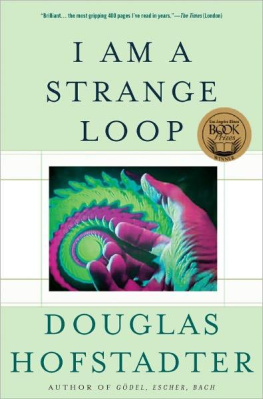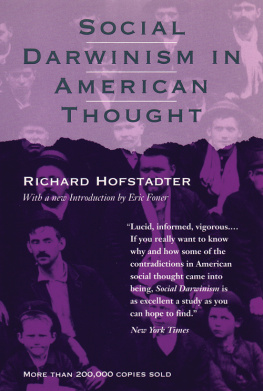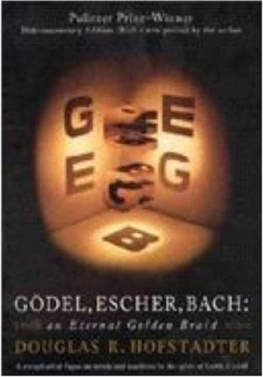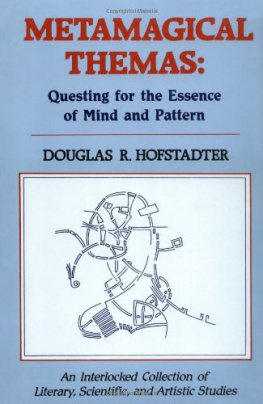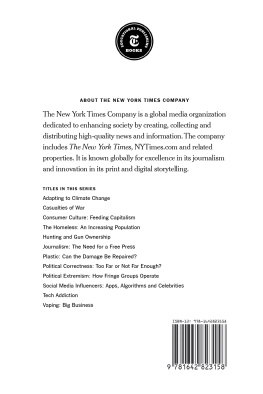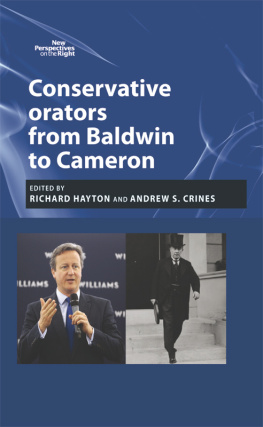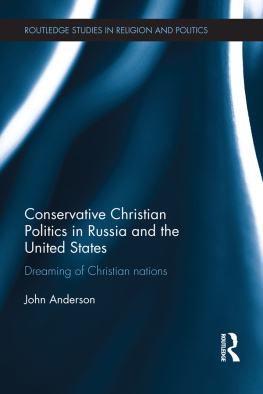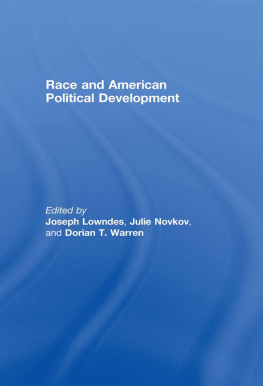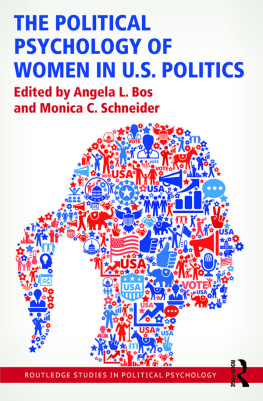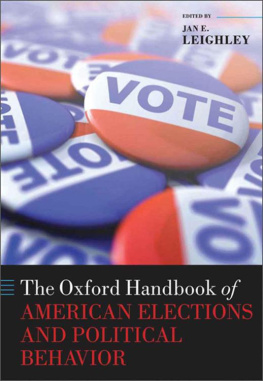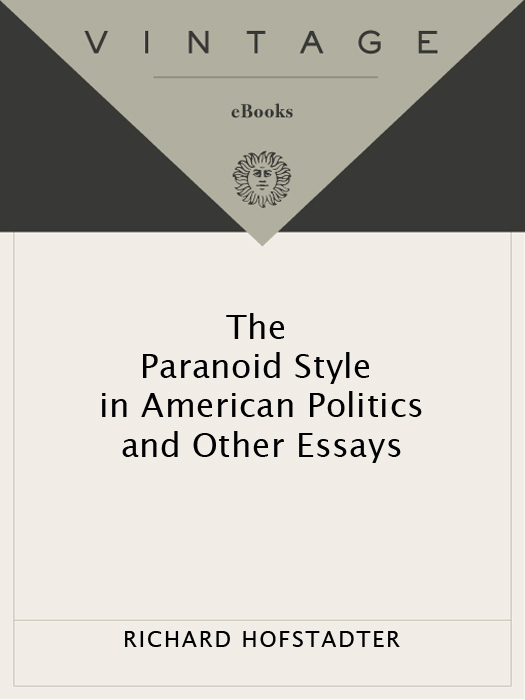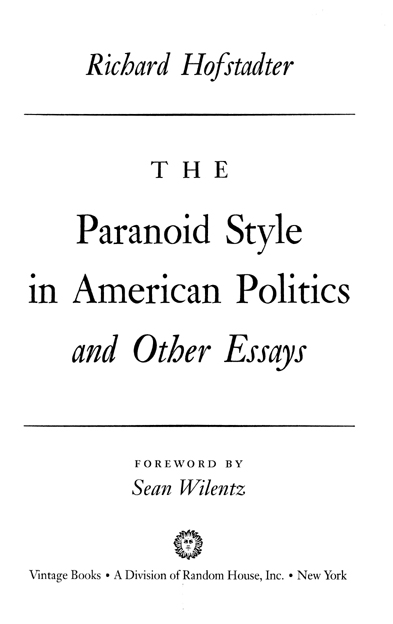Richard Hofstadter
The Paranoid Style in American Politics
Born in 1916, Richard Hofstadter was one of the leading American historians and intellectuals of the twentieth century. His works include The Age of Reform, Anti-intellectualism in American Life, Social Darwinism in American Thought, 18601915, and The American Political Tradition. He was twice awarded the Pulitzer Prize. He died in 1970.
Also by Richard Hofstadter

Social Darwinism in American Thought,
18601915
The American Political Tradition and the Men Who Made It
The Development and Scope of Higher Education
in the United States
with C. De Witt Hardy
The Development of Academic Freedom in the United States
with Walter P. Metzger
The Age of Reform: From Bryan to F.D.R.
Anti-intellectualism in American Life
The Progressive Historians: Turner, Beard, Parrington
The Idea of a Party System: The Rise of Legitimate Opposition
in the United States, 17801840
American Violence
with Michael Wallace
America at 1750: A Social Portrait
FIRST VINTAGE BOOKS EDITION, JUNE 2008
Copyright 1952, 1954, 1964, 1965 by Richard Hofstadter
Foreword copyright2008 by Sean Wilentz
All rights reserved. Published in the United States by Vintage Books, a division of Random House, Inc., New York, and in Canada by Random House of Canada Limited, Toronto. Originally published in hardcover in slightly different form in the United States by Alfred A. Knopf, Inc., New York, in 1965.
Vintage and colophon are registered trademarks of Random House, Inc.
Grateful acknowledgment is made to the following for permission to reprint previously published material:
Harvard College: Free Silver and the Mind of Coin Harvey by Richard Hofstadter, originally published as the Introduction to the John Harvard Library edition of Coins Financial School, copyright 1963 by the President and Fellows of Harvard College. Reprinted by permission of the President and Fellows of Harvard College.
John Wiley & Sons, Inc.: What Happened to the Antitrust Movement? by Richard Hofstadter from The Business Establishment, edited by Earl F. Cheit, copyright 1964 by John Wiley & Sons, Inc. Reprinted by permission of John Wiley & Sons, Inc.
Cataloging-in-Publication Data is on file at the Library of Congress.
eISBN: 978-0-307-80968-1
www.vintagebooks.com
v3.1
TO THE MEMORY OF HARRY J. CARMAN
Contents

Foreword to the Vintage Edition

I
T HE first essay in this collection, a study of political cranks and zealots, is probably the best-known work by one of the finest American historians of the twentieth century. It certainly remains the timeliest.
Richard Hofstadter delivered the first version of The Paranoid Style in American Politics as a Herbert Spencer Lecture at Oxford University in November 1963, the same month that President John F. Kennedy was murdered; an abridged version appeared in Harpers Magazine the following year. The lecture had grown out of Hofstadters long-standing apprehensions about the rise of American right-wing extremism after World War IImost conspicuously the McCarthyite hysteria of the early 1950s but also the profusion of new right-wing organizations such as the John Birch Society. Hofstadter disagreed with those critics who suggested that these disturbances were extensions of European fascism: They could only have originated in American history, he argued. In tracking those origins, Hofstadter discovered a chronic, rancid syndrome in our political life that he called, loosely, paranoid. The paranoid style, he contended, had long afflicted radical movements on the left as well as the right, and had even touched some good causes, including the antislavery movement. Usually, however, it appeared in bad ones.
Conceived during Dwight D. Eisenhowers centrist Republican presidency, The Paranoid Style analyzed impulses that Hofstadter believed had, at least for the time being, been contained at the political margins. President Eisenhower himself had privately called the right-wing extremists of the mid-1950s stupid and predicted that, should any political party adopt their positions, you would not hear of that party again in our political history. Yet only six years laterthe same year that The Paranoid Style appeared in Harpersright-wing zealots seized control of Eisenhowers party and nominated Barry Goldwater for president.
Hofstadter studied the Goldwater campaign closely and wrote an essay about its worrisome paranoid emanations. He duly included Goldwater and Pseudo-Conservative Politics in his new collection of essays, along with a revised version of The Paranoid Style, and some second thoughts about a brief earlier study of right-wing extremism. To read these selections today is to see a devoted liberal of moderate disposition aroused by his realization that, despite Goldwaters crushing defeat in the general election in 1964, some of the worst distempers of American democracy had become, as he wrote, a formidable force in our politicsand, quite possibly, a permanent one.
In fact, those distempers would eventually sweep over American political life, although Hofstadter did not live to see it happen in full. Historians who claim prophetic gifts are charlatans, yet seldom has any work of history, let alone a collection of essays, done more to foretell the spirit of things to come than The Paranoid Style in American Politics.
II
I N 1965, Richard Hofstadter, the recipient of two Pulitzer Prizes and holder of the DeWitt Clinton Professorship at Columbia University, was widely regarded as the most incisive and original historian of his generationas he is still regarded today. Hofstadters books and essays on American political history and on what he called political culture won him readers far beyond the academyyet the respect of his demanding professional peers remained undiminished.
Some critics tried to pigeonhole Hofstadter as a proponent of what was known as the consensus interpretation of American history, which became associated with a complacent, even conservative political outlook that denied injustice and vaunted national unity. Yet there was nothing complacent about either the man or his scholarship, and he cannot be labeled as a conservative. He had outgrown a youthful adherence to the Marxism that had led him to join, very briefly, the Communist Party, but he did not harbor the outrage and remorse that drove many disillusioned leftists far to the political right. (He would include in the 1965 version of The Paranoid Style a blast at those ex-leftists who had moved from the paranoid left to the paranoid right, clinging all the while to the Manichean psychology that underlies both.) A restless, skeptical liberal intellect, he refused to trade one dogma for another, but rather became a mordant critic and deflator of all dogmas, in his politics as well as his historical writing. His aversion to doctrinaire thinking fed his curiosity about such thinking in American politics, and the combination propelled much of his best writing in the 1950s and 1960s, including the essays in


